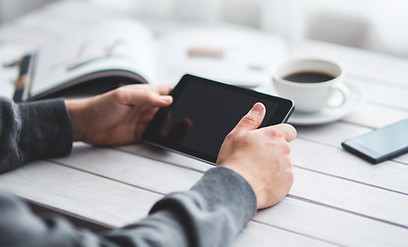

WHAT IS COVID-19?
The Coronavirus disease 2019 (COVID-19) is a respiratory illness that can spread from person to person.
HOW DOES IT SPREAD?
It spreads through respiratory droplets or small particles, such as those in aerosols, produced when an infected person coughs, sneezes, sings, talks, or breathes.
HOW DO I PROTECT MYSELF AND OTHERS?
Wash your hands often for at least 20 seconds, avoid close contact with other people inside or outside your home, cover your nose and mouth with a mask, cover your cough or sneezes, and monitor your health daily.

FLEXIBILITY
As employee needs vary greatly, we provide flexible work arrangements. Flexible hours involve modifying the starting and ending times of regular daily hours.
MONITORING
We have adopted thermal temperature screenings and assess symptoms before every shift. If an employee becomes sick during the day, they will be sent home immediately.
SOCIAL DISTANCING
To ensure continuity of operations all employees maintain 6 feet and practice social distancing as work duties permit in the workplace.
PROTECTIVE GEAR
All employees must wear a face mask at all times while out in the field. We also provide face masks, gloves, and hand sanitizer if an employee does not have one. We emphasize frequent hand washing and proper hygiene.

CORONAVIRUS AND YOUR MENTAL HEALTH
Social distancing, quarantine, and isolation can be overwhelming and may cause various emotions in adults, teens, and children. The Coronavirus doesn't just affect your physical health but also your mental health as well.
Since being advised to stay home by our government officials, some people are experiencing additional mental stress or are new to these feelings. Here are a few symptoms you may be feeling:
-
Increased irritability
-
Excessively checking for symptoms
-
Loss of hope
-
Sleep disturbances
-
Elevated anxiety
-
Self-doubt
-
Enhanced stress
-
Guilt

DOMESTIC VIOLENCE
Domestic violence has long been a problem before COVID-19 but quarantine has led to a double pandemic. Women, children, and members of the LGBTQ are on the rise because they have limited physical distance from their abuser. It's important to remember that domestic violence occurs in many forms, not just physical. If you feel unsafe, please do not hesitate to seek emergency help from national hotlines.

HEALTHY EATING AND DRINKING
Although no foods or dietary supplements can prevent or cure COVID-19, healthy diets are essential for supporting your immune system and mental health. It’s always important to practice good hygiene when handling food to prevent any food-borne illnesses. If possible, consider home deliveries or have a trusted friend or family member bring you food.

TAKE YOUR MEDICATION
Home delivery of prescription medications may be available from your local pharmacy, and most major pharmacy chains also offer prescription mail order services. Some are even waiving delivery fees during the outbreak. Set daily reminders on a device or have someone help you with organizing your medications.

CONTINUE TREATMENT
As most offices are closed, technology today provides you with online support from your therapist. Sessions can be continued via phone, virtual, online, or text. If you lost your insurance from unemployment, there is hope. You can ask for a sliding scale so a therapist can work with you based on what you can afford.

Is it Anxiety or COVID-19?
To someone who hasn’t experienced an anxiety attack before, symptoms could seem like shortness of breath, body aches, fever, extreme fatigue, or nausea, chills, tingling in feet or neck, feeling claustrophobic, excessive worry, and chest pain that can be confused with the Coronavirus.
Pay attention to these symptoms, so you’ll know if you’re experiencing anxiety or something more serious.
Take your temperature at least once a day as frequent checks may increase the anxiety, use a distraction technique to reduce some symptoms. If you are still unsure, and or sick, contact a medical professional for additional support.
Never feel ashamed or embarrassed if you suffer from anxiety, nobody is perfect in any way. Remember to give yourself credit for recognizing your struggle.
Substance Abuse
Increased stress and anxiety can lead to alcohol and substance abuse.

TELEHEALTH SERVICES
Through enhanced convenience, reduced travel time, and cost savings, telehealth and telemedicine offers additional benefits for both patients and physicians
RECOVERY PROGRAMS
Organizations have converted to online or over the phone support systems to maintain connections.
VIRTUAL TREATMENT
Stay on track with your treatment plan from the comfort of your home.

Coping With Stress During The Pandemic



MAKE TIME TO RELAX
Try engaging in other activities you might enjoy or something new that is healthy.



KNOW WHAT TO DO IF YOU ARE SICK
Please contact a medical professional before treating yourself at home.



TAKE FREQUENT BREAKS
As news about the coronavirus updates daily, it may be upsetting. Naps are healthy for the mind and body



CONNECT WITH FAMILY OR FRIENDS
Make time to talk with a trusted individual about how you are feeling or any concerns you may have.



TALK WITH A PROFESSIONAL
Call a health care provider if your anxiety interferes with your daily activities